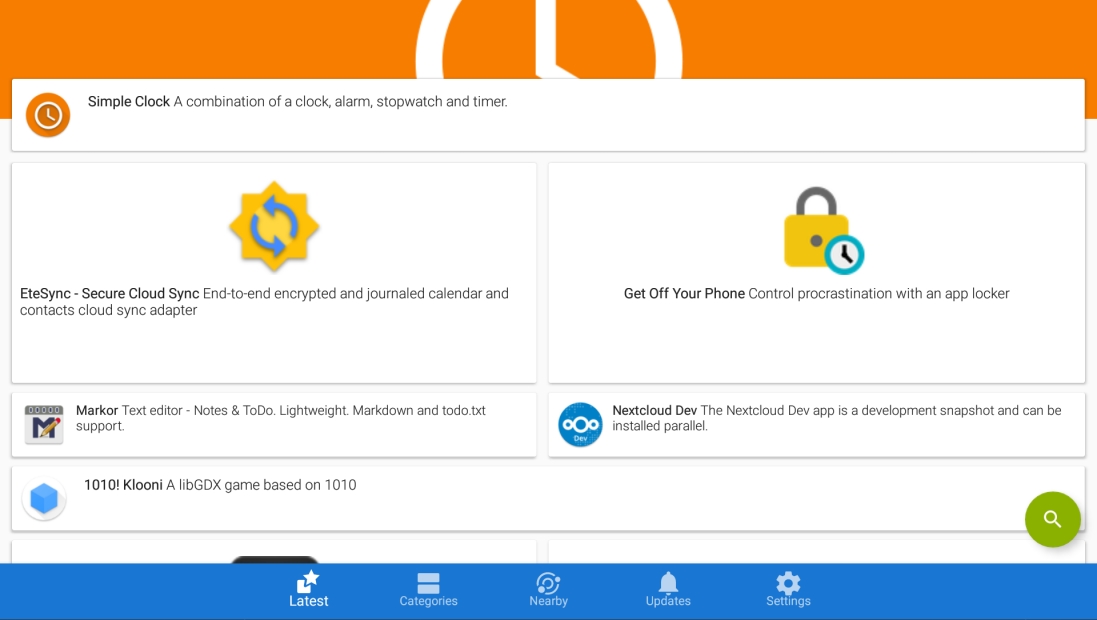Android is an open source platform. At least in a technical and “minimum requirements” sense. Its development isn’t entirely open and it app ecosystem is largely made up of proprietary apps and services, including Google’s own. While there’s no way to really fix the former (development of Android itself), there are definitely open source apps that you can use. However, sifting through Google Play Store to find them is an exercise in extreme patience and simply sideloading APKs downloaded from websites is inviting trouble. Fortunately, we have F-Droid.
Practically closed openness
Despite being an open source (and relatively open) platform, the roster of proprietary apps on Android far outnumber open source ones. Admittedly, some of those closed source apps may a offer better experience but some (or many) also do some rather questionable activities behind your back. And yes, that might include Google. Bottom line is you never really know. Not unless you or someone smarter has access to the apps’ source code. In other words, they’d have to be open source.
The Google Play Store has no restrictions on apps using open source licenses and Android itself allows installing apps from outside that sanctioned store. But finding open source apps isn’t exactly easy and neither is it always safe, considering you could get an installable APK from anywhere these days. What open source users need is something like a Google Play Store but only for open source Android apps and with an open source spirit and process. In other words, a better app store.
Open market
That’s exactly what F-Droid is all about. It has one and only one critical requirement for apps to even get through: it has to be open source. OK, there may be other requirements (like the tools needed to build the app must be open source) but that’s the base line. Some apps may include some non-free assets (like music) or may point to proprietary plugins. That’s fine, too, to some extent. But if it’s on F-Droid, you can be sure that it’s open source at the very core.
This isn’t just about open source bragging rights. By distributing only apps whose source code is available under open source licenses, F-Droid can assure users that there are no hidden tracking or spyware features in the apps. Or at least someone would be able to catch those before they do extensive harm. There are also other implicit assurances, like being able to continue the app long after the developer abandoned it or not losing precious personal data in the same scenario. In other words, F-Droid offers users a level of control that the Play Store can’t.
Many eyeballs
The recent brouhaha over Epic Games’ very public snub of the Google Play Store brought many issues to light. On the one hand, there’s the rather exorbitant 30% “tax” imposed not just by Google but by Apple as well. On the other hand, one unsurprising incident also highlighted the advantage of the Play Store over other app markets. There is no question F-Droid can’t match Google’s algorithms and automated security systems. But it does have something better on a different level: the power of community and open standards.
F-Droid’s security model is built on industry standards such as HTTPS, PGP, and other security technologies. It uses the very same certificate-based system that Google itself requires from app developers. More importantly, all of this is in the open, for others to audit and check that nothing underhanded is happening.
You can never say the same for Google’s mighty AI. F-Droid also utilizes open source’s biggest asset when it comes to numbers: the community. Anyone and everyone can take a peek at source code, report problems, and point out suspicious activity. Users and developers are given the power to control and police their own ranks.
Acquired taste
Users installing F-Droid for the first time these days have to be thankful they didn’t meet it even just a year or two ago. Back then, the app and the app store were quite uninviting, to put it kindly. It has gotten much better now and it has learned to use colors and images. Some apps even have screenshots but, in typical open source fashion, it isn’t a hard requirement. F-Droid still prioritizes openness, accuracy, accountability, and security over fluff.
Getting F-Droid installed still isn’t a one-step process and installing and updating apps might not be what most users are used to. Such are the consequences of doing things outside of the Play Store.
The selection of apps is definitely a fraction compared to Play Store and some might not even be remotely on par with proprietary counterparts. It is, however, the only safe open source haven on Android but F-Droid won’t harbor grudges if you decide to mix and match. Because at the end of the day, F-Droid, like open source in general, gives you what proprietary systems can’t: the freedom to make a choice and the power to control your destiny.
